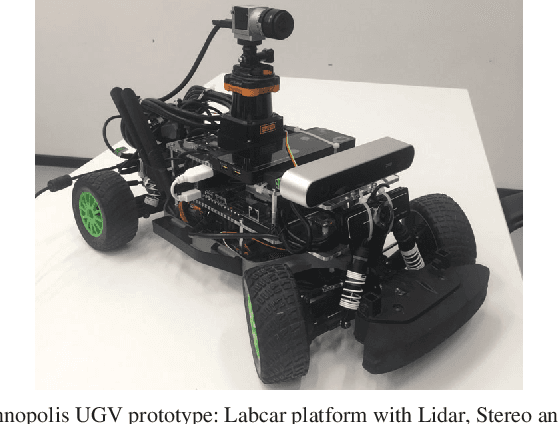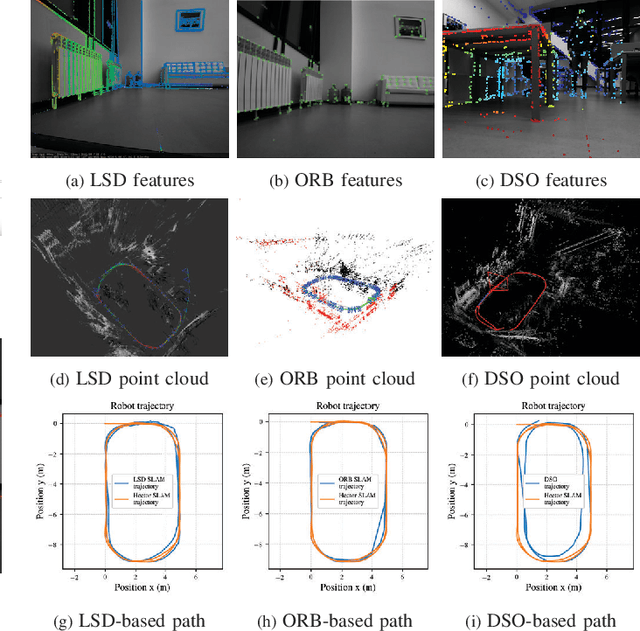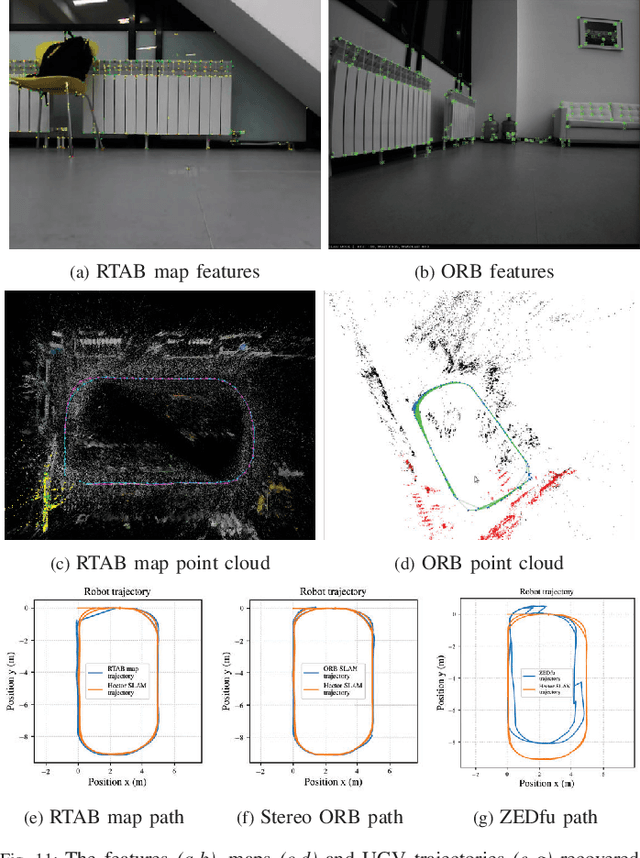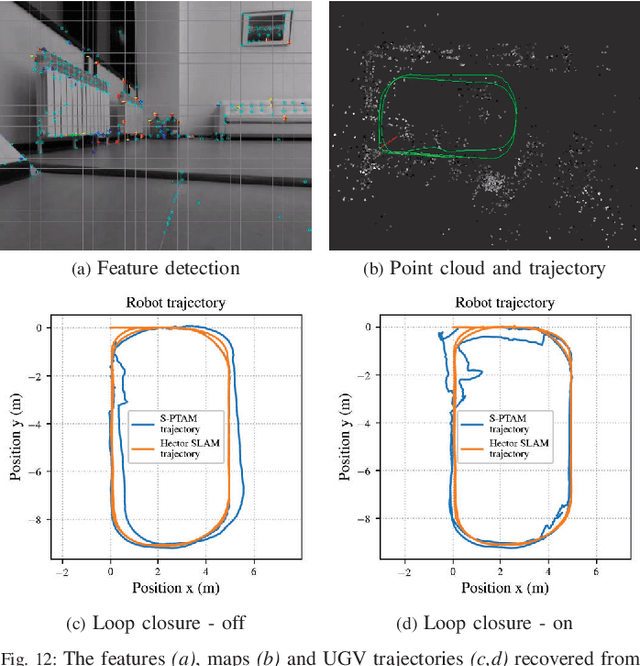Maksim Filipenko
Comparison of Various SLAM Systems for Mobile Robot in an Indoor Environment
Jan 16, 2025



Abstract:This article presents a comparative analysis of a mobile robot trajectories computed by various ROS-based SLAM systems. For this reason we developed a prototype of a mobile robot with common sensors: 2D lidar, a monocular and ZED stereo cameras. Then we conducted experiments in a typical office environment and collected data from all sensors, running all tested SLAM systems based on the acquired dataset. We studied the following SLAM systems: (a) 2D lidar-based: GMapping, Hector SLAM, Cartographer; (b) monocular camera-based: Large Scale Direct monocular SLAM (LSD SLAM), ORB SLAM, Direct Sparse Odometry (DSO); and (c) stereo camera-based: ZEDfu, Real-Time Appearance-Based Mapping (RTAB map), ORB SLAM, Stereo Parallel Tracking and Mapping (S-PTAM). Since all SLAM methods were tested on the same dataset we compared results for different SLAM systems with appropriate metrics, demonstrating encouraging results for lidar-based Cartographer SLAM, Monocular ORB SLAM and Stereo RTAB Map methods.
 Add to Chrome
Add to Chrome Add to Firefox
Add to Firefox Add to Edge
Add to Edge